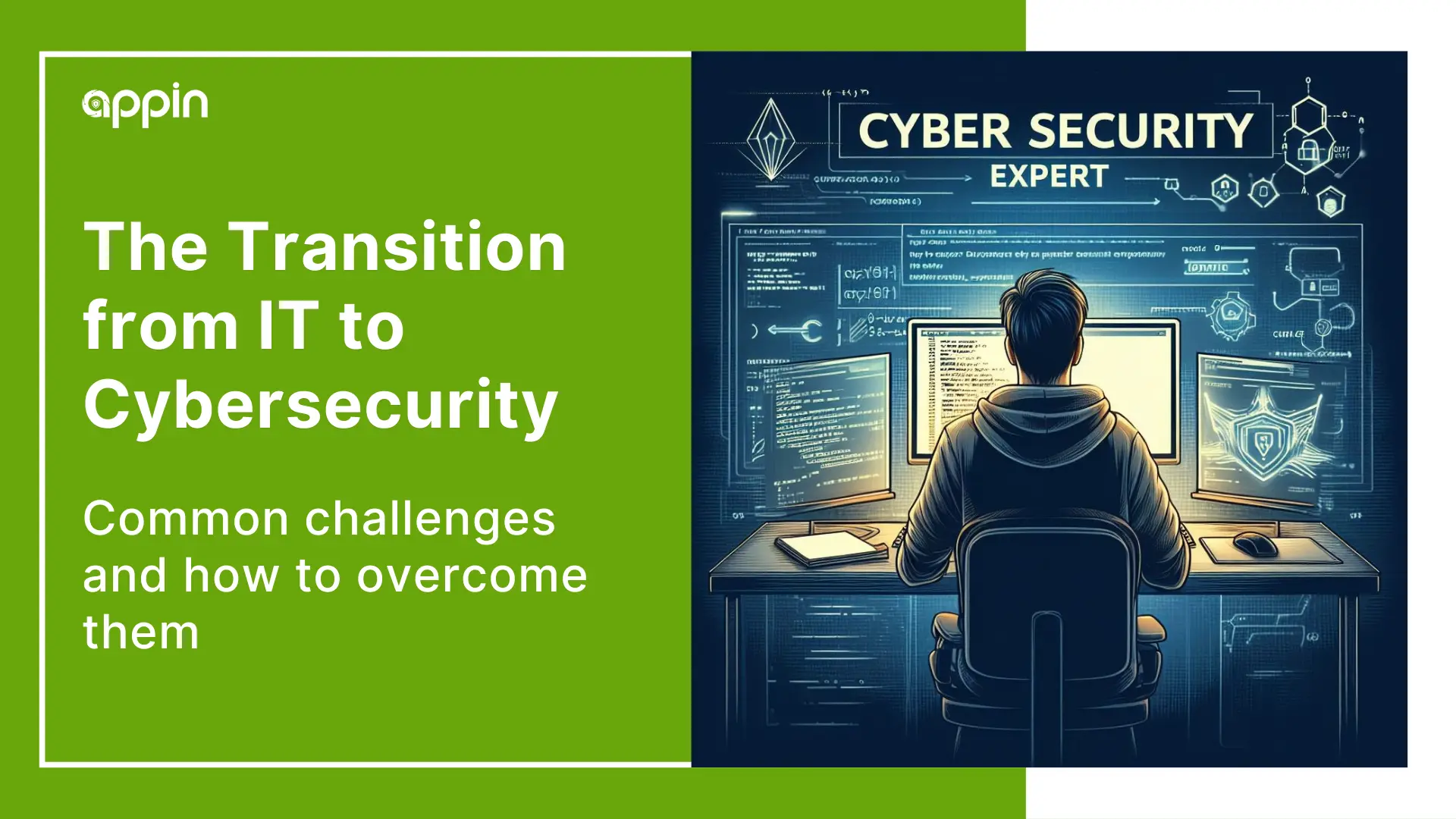As cyber threats continue to evolve and become more sophisticated, the demand for skilled cybersecurity professionals is on the rise. For individuals working in the field of Information Technology (IT), transitioning to a career in cybersecurity can be an attractive prospect. However, this transition is not without its challenges.
In this blog, we’ll talk about the common problems people face when moving from IT to cybersecurity, and how to deal with them. We’ll cover things like understanding the differences between IT and cybersecurity, learning new skills, finding job opportunities, making connections, and feeling unsure about yourself.
Understanding the Differences Between IT and Cybersecurity
One of the first challenges that IT professionals may encounter when transitioning to cybersecurity is understanding the differences between the two fields. While both fields deal with technology, they have distinct focuses and objectives.
IT is primarily concerned with managing and maintaining technology infrastructure, ensuring that systems and networks are operational and efficient. On the other hand, cybersecurity is focused on protecting these systems and networks from cyber attackers and threats.
To overcome this challenge, IT professionals must familiarize themselves with the fundamentals of cybersecurity, including concepts such as threat detection, incident response, and risk management. This may involve taking cybersecurity courses, obtaining relevant certifications, and actively seeking opportunities to gain hands-on experience in cybersecurity-related tasks.
Developing New Skills and Knowledge
Another common challenge for IT professionals transitioning to cybersecurity is the need to develop new skills and knowledge. While IT professionals may possess technical skills relevant to cybersecurity, such as network administration or system maintenance, they may lack specific cybersecurity skills, such as ethical hacking, penetration testing, and digital forensics.
To address this challenge, IT professionals should prioritize learning and skill development in areas relevant to cybersecurity. This may involve enrolling in cybersecurity training programs, participating in online courses or workshops, and seeking mentorship or guidance from experienced cybersecurity professionals. Additionally, pursuing industry-recognized certifications, such as Certified Ethical Hacker (CEH) or CompTIA Security+, can help validate skills and demonstrate competency to potential employers.
Navigating the Job Market
Navigating the job market can be a significant challenge for IT professionals transitioning to cybersecurity, particularly if they lack direct experience in the field. Many cybersecurity roles require candidates to have specific skills, certifications, or experience, making it difficult for individuals without a cybersecurity background to secure employment in the field.
To overcome this challenge, IT professionals should focus on building a strong foundation of cybersecurity knowledge and skills, as well as actively seeking opportunities to gain practical experience. This may involve taking on cybersecurity-related projects or assignments within their current organization, participating in cybersecurity competitions or hackathons, or volunteering for cybersecurity initiatives in their community.
Networking and Building Connections
Networking and building connections within the cybersecurity community can also be challenging for IT professionals transitioning to cybersecurity. Building a professional network of cybersecurity professionals can provide valuable insights, advice, and opportunities for career advancement. However, IT professionals may not have existing connections in the cybersecurity field and may struggle to establish themselves within the community.
To address this challenge, IT professionals should proactively seek out networking opportunities within the cybersecurity community. This may involve attending industry events, such as conferences or meetups, joining online forums or professional associations, and reaching out to cybersecurity professionals on social media platforms like LinkedIn. Building relationships with mentors, peers, and industry experts can provide valuable support and guidance throughout the transition process.
Conclusion
Moving from IT to cybersecurity can be hard, but if you stay determined, work hard, and take action, you can overcome any challenges. By gaining practical experience, learning more, getting the right certifications, meeting other people in the field, and dealing with feeling like you don’t belong, you can start a successful career in cybersecurity. Remember, every problem you face is a chance to get better and more confident in what you do.
If you are an IT professional and looking to transition into cybersecurity, Appin Technology Lab offers a comprehensive cyber security training course tailored to meet the demands of the industry. With a focus on hands-on experience, practical skills development, and obtaining relevant certifications, Appin’s cybersecurity training equips individuals with the knowledge and expertise needed to thrive in this dynamic field.


